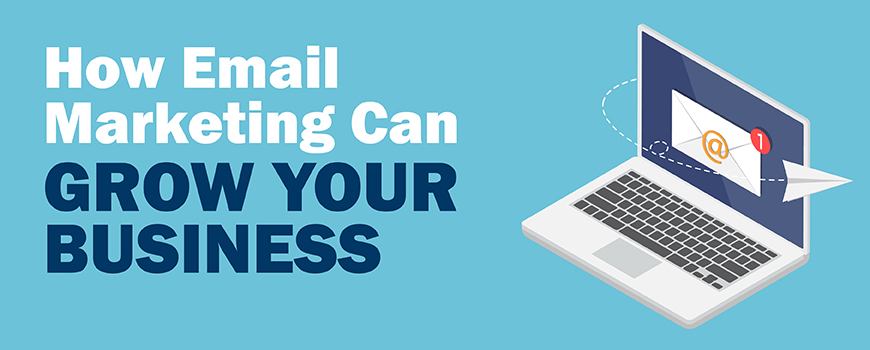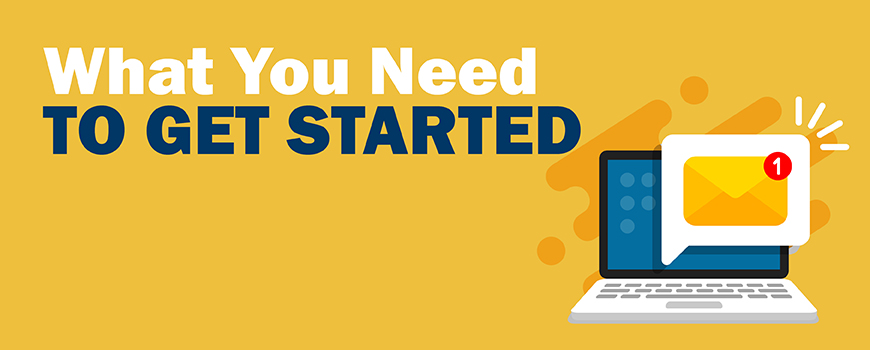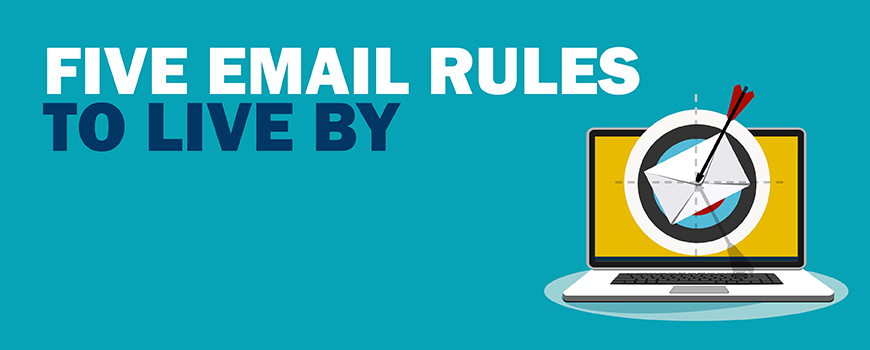posted
on Wednesday, May 13, 2020
in
Realtor News

Could you imagine what life would be like without email? It's become an essential part of how we conduct business and even manage our personal lives. Nearly every facet of modern life that takes part online — from online banking to food delivery services to your beloved Netflix account — requires an email address to be associated with it. And behind each email that a brand has in its database lies the opportunity for increased engagement and revenue growth.
Email marketing can transform the way you drive sales, nurture relationships, and promote your brand. If you're not leveraging email to its fullest potential, it's time to change that.
Why Email Is Effective:
- People spend 5 hours a day checking emails1
- 72% of consumers prefer it over any other communication channel2
- It has significantly high ROI, generating $42 for every $1 spent3
Email Marketing can be:
- Highly targeted
- Automated
- Integrated with other marketing channels
- Easily tracked and measured
3 Ways to Use Email Marketing
How can email marketing support your business goals? Most emails fall under the following three categories:
Transactional: Drive Sales
These emails support the sales process. Think of a lead-nurture drip campaign, in-process communications, or post-sale follow-ups. For instance, a lead-nurture campaign may include content that educates potential clients about your value proposition, details steps involved in the transaction, and offers other carefully crafted content to help increase conversions. Transactional emails can be triggered by a behavior or milestone, so you're sending the right message at precisely the right time.
Informational: Nurture Relationships
Delivering consistent, value-added marketing impressions is integral to building brand awareness and maintaining customer loyalty. Use email to offer additional value to your customers — free of charge — in the form of informational newsletters. Be sure it's a targeted campaign that's relevant to their interests and creates anticipation, so they look forward to hearing from you. A regularly scheduled seasonal or holiday campaign is another excellent way to keep in touch and show clients you care about them.
Promotional: Promote Your Brand
Did you know 90% of email gets delivered to the intended recipient, whereas just 2% of Facebook fans will see your posts in the news feed?4 Email is a simple and effective way to get the word out about pretty much anything. Send promotional emails to inform customers of new offers and listings, provide discounts, and announce events or seminars.

Your email strategy can be as simple or robust as you'd like it to be. Whether you have access to a dedicated team to develop, execute, and monitor your email campaigns for you, or you plan to run the show on your own, here are four things you'll need to get started.
Subscribers
Your customer database is your starting point for email marketing. You should be making sure every new client and referral provides you with their email address. From there, you can work to grow your subscriber base (aka email list) by other means, such as placing a "subscribe now" button on your social media page or enticing people with gated content.
Whatever you do, do not purchase an email list. Yes, they exist, but paid or rented lists can tarnish your reputation as they ignore perhaps the most important rule of email marketing: permission. Giving people a way to opt in ensures they want to hear from you and helps you avoid being blacklisted by your email service provider (and possibly violating the CAN-SPAM Act).
Segmented Lists
You'll need to have separate lists for separate audiences. You wouldn't want to send a prospecting email to recent customers, for example. Segment your lists based on audience persona. If you're just getting started, create separate lists for new leads, prospects, past customers, and partners. From there, you can drill down even further based on how targeted you'd like your message to be.
An Email Service Provider (ESP)
An ESP is a platform that lets you store and manage your subscriber lists and distribute emails. Think of it as the headquarters for your email marketing operations. Many of the leading ESPs also provide the ability to test, schedule, automate, and track your email sends, and design and build your emails with ready-made templates.
Email Templates
A template is an HTML file that prescribes the basic layout of your email. Its design indicates where the text, images, calls to action (CTAs), and other elements should go. As mentioned above, many ESPs offer a library of templates that you can customize according to your brand guidelines and the message you want to convey. You could also create emails from scratch — which opens up the possibilities for more advanced designs — but that requires a specialized skill set and a lot more time. It's ok to start simple until your skills or your resources grow.
At a basic level, your template should consist of the following elements:
- Header: usually a headline, image, or logo
- Body: a mixture of text and images to convey your message
- CTA: a clickable button or plain text that tells the reader what to do next
- Footer: includes your address, phone number, website and an unsubscribe link
.png) Good to Know
Good to Know
The CAN-SPAM Act requires that your emails include your physical address and a clear and conspicuous way to opt out of your emails. Remember to include theses in the footer!

- Write compelling content. Make it valuable and relevant to the recipient.
- Create an attention-grabbing subject line to encourage opens. Steer clear of deceptive subject lines.
- Optimize your email template for mobile devices — most emails are read on mobile.
- Before you hit send, Test, Test, Test.
- Measure your results. Track open rates, engagement, click-throughs, unsubscribes, and more to learn what works — and what doesn't.
With email marketing, you don't need to be an expert to get things going. Determine how much time and resources you can devote to it, and start there. The more you use it, the more you'll see just how easy and effective email can be for growing your business.
Sources:
[1] 2019 Adobe Email Usage Study. [2] Marketing Sherpa, Marketing Research Chart, 2015. [3] Litmus, The ROI of Email Marketing, 2019. [4] Forrester Research, Social Relationship Strategies That Work, 2014.